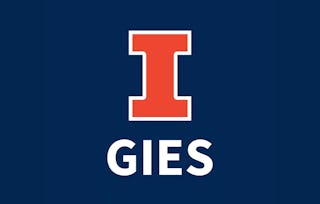This course is the continuation of "Introduction to Service Innovation and Management". If you have not yet taken "Introduction to Service Innovation and Management", it is recommended that you complete that course prior to this course. The foundational knowledge and project plan from the introduction are carried through in this deeper dive into service innovation and management.

Engaging in Service Innovation and Management
Ends soon: Gain next-level skills with Coursera Plus for $199 (regularly $399). Save now.

Recommended experience
What you'll learn
Apply both organizational and individual attributes that will be needed to manage effective process improvement.
Analyze the importance of long-term commitment and resilience needed for effective management of organizational commitment.
Analyze the operational approaches to the execution of strategic plans and how it can be used effectively to achieve organizational goals.
Skills you'll gain
- Service Design
- Process Management
- Stakeholder Management
- Organizational Leadership
- Organizational Change
- Innovation
- Team Management
- Team Building
- Continuous Improvement Process
- Service Management
- Service Improvement
- Leadership
- Leadership and Management
- Change Management
- Culture Transformation
- Health Care Administration
- Healthcare Industry Knowledge
- Process Improvement
- Process Design
- Operations Management
Details to know

Add to your LinkedIn profile
1 quiz, 35 assignments
See how employees at top companies are mastering in-demand skills

There are 4 modules in this course
While developing plans for innovative healthcare services and processes, you'll find that true change can only take place when leaders are engaged and are able to define what success not only should look like but also how to measure that success. In this module, we will consider various aspects of measuring organizational change, from the role of consumers in measuring outcomes to the balance of efficiency and effectiveness in service. You will examine specific techniques, such as Value Stream Mapping, that inform the practical development and implementation of measurement in healthcare organizational design.
What's included
8 videos18 readings10 assignments3 discussion prompts
The healthcare organization is routinely impacted by external factors such as governmental regulations, relationships with insurers and payers, and organizations throughout the wider community context. It is well-established that community and social factors such as financial status/stability, physical environment, education, and housing stability are powerful drivers of health status of patients even before they may seek medical care. This module will explore treatment and care delivery to disparate populations as it pertains to the design and evaluation of process improvement efforts, as well as other external factors that must be identified and accounted for in process improvement. Understanding and monitoring external factors will ensure that the healthcare organization remains competitive and is able to nimbly shift priorities as the external context evolves.
What's included
7 videos13 readings9 assignments1 peer review
In this module, we will examine the challenges in bringing about organizational change. Organizations are comprised of people, tools, and processes. Resistance to change existing processes and workflows in healthcare organization is a hurdle that leadership and management can address through effective communication, team building, and fostering a sense of trust and purpose. This module will explore those tactics, as well as provide insight and examples of challenges on the side of the patient or consumer receiving the healthcare services.
What's included
7 videos18 readings1 quiz8 assignments1 discussion prompt
As we near the end of this course, we will now look at the necessity of leadership throughout the change process. This is true regardless of the role the individual or the team members might have, especially as the future if healthcare delivery continues to change. We will explore three models of organizational archetypes of the future and review how future trends will impact leadership within healthcare organizations. With the increasing role of new technology and the role it will play, it is critical for organizations to adapt and change. In the future there will be certain obstacles and challenges leaders will face and need to overcome. These will require new roles, abilities, and attributes that successful leaders will need to have. Bottom line, leadership will play an important role in successful process innovations that can stand the test of time.
What's included
7 videos11 readings8 assignments1 discussion prompt
Instructor

Offered by
Explore more from Leadership and Management
 Status: Preview
Status: PreviewNortheastern University
 Status: Preview
Status: Preview Status: Free Trial
Status: Free Trial Status: Free Trial
Status: Free TrialUniversity of Illinois Urbana-Champaign
Why people choose Coursera for their career




Frequently asked questions
To access the course materials, assignments and to earn a Certificate, you will need to purchase the Certificate experience when you enroll in a course. You can try a Free Trial instead, or apply for Financial Aid. The course may offer 'Full Course, No Certificate' instead. This option lets you see all course materials, submit required assessments, and get a final grade. This also means that you will not be able to purchase a Certificate experience.
When you purchase a Certificate you get access to all course materials, including graded assignments. Upon completing the course, your electronic Certificate will be added to your Accomplishments page - from there, you can print your Certificate or add it to your LinkedIn profile.
Yes. In select learning programs, you can apply for financial aid or a scholarship if you can’t afford the enrollment fee. If fin aid or scholarship is available for your learning program selection, you’ll find a link to apply on the description page.
More questions
Financial aid available,





